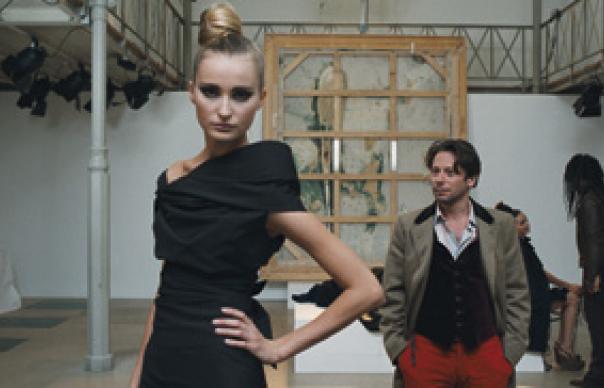DIR: JULIAN SCHNABEL ST: MATHIEU AMALRIC, EMMANUELLE SEIGNER, MAX VON SYDOW This is adapted from the memoir of Jean-Dominique Bauby (Amalric), a former Vogue editor-in-chief rendered, by a stroke, paralysed and unable to communicate except by blinking his left eye. A "blinking alphabet" was devised and he, bedridden, painstakingly dictated his frightened yet dignified thoughts and recollections to his book editor. It is, you might imagine, the kind of book that falls into the "impossible to film" category, yet Schnabel has transposed the book thoughtfully and successfully. He shoots much of the story from Bauby's point of view, playing with focus and light, replicating the world as seen through his left eye. We experience his immobility, his not inconsiderable frustrations. If you want to know what the title means: the diving bell is Bauby's dreadful physical limitations and the butterfly represents his fertile imagination. Bauby's losing battle is heroic, yet he remains, importantly, human, fancying the nurses, mocking himself. In flashbacks, we see him as a fully-functioning person, at work and at home, scenes that only serve to enhance the tragedy of his situation. In the wrong hands, this could have been a wretched Hollywood tear-jerker; in Schnabel's it's an inspiring and profoundly moving experience. CHRIS ROBERTS
DIR: JULIAN SCHNABEL
ST: MATHIEU AMALRIC, EMMANUELLE SEIGNER, MAX VON SYDOW
This is adapted from the memoir of Jean-Dominique Bauby (Amalric), a former Vogue editor-in-chief rendered, by a stroke, paralysed and unable to communicate except by blinking his left eye. A “blinking alphabet” was devised and he, bedridden, painstakingly dictated his frightened yet dignified thoughts and recollections to his book editor.
It is, you might imagine, the kind of book that falls into the “impossible to film” category, yet Schnabel has transposed the book thoughtfully and successfully. He shoots much of the story from Bauby’s point of view, playing with focus and light, replicating the world as seen through his left eye. We experience his immobility, his not inconsiderable frustrations.
If you want to know what the title means: the diving bell is Bauby’s dreadful physical limitations and the butterfly represents his fertile imagination. Bauby’s losing battle is heroic, yet he remains, importantly, human, fancying the nurses, mocking himself. In flashbacks, we see him as a fully-functioning person, at work and at home, scenes that only serve to enhance the tragedy of his situation. In the wrong hands, this could have been a wretched Hollywood tear-jerker; in Schnabel’s it’s an inspiring and profoundly moving experience.
CHRIS ROBERTS


